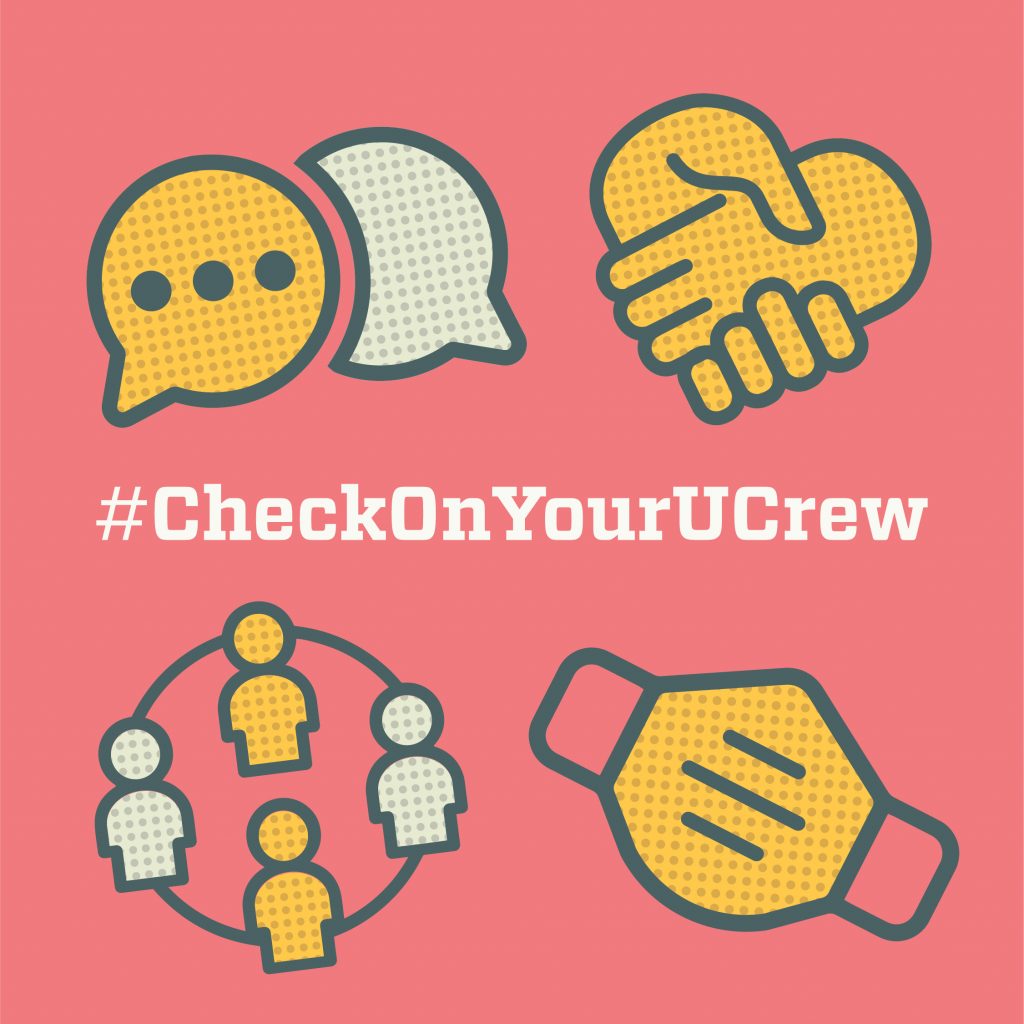The academic year is drawing to a close and the most important thing any of us can do for ourselves is to take stock and prioritize ourselves and our own well-being. You can’t take care of others if you don’t take care of yourself. So #CheckOnYourUCrew and check-in with yourself.

“If we lack wellness in the different areas of our life, it can be a challenge to feel fulfilled,” said Brittany Badger, director of the Center for Student Wellness. “Wellness is a foundational concept. It can be difficult to prioritize your own self-care needs. But when you take the time to take care of yourself, you’ll find that your capacity to care for others can increase and you feel more fulfilled.
Everyone’s wellness journey is unique. As we explore our own personal wellness, it’s important to remember that being well looks different for everyone and that these dimensions of wellness are interconnected, active and dynamic. Recognizing areas of our wellness that are thriving and those that may need additional support can help us seek the resources we need and take positive steps to become better.
Over the summer the following resources never stop providing support for the University of Utah community. So, continue with the important work of #CheckOnYourUCrew.
Welllness: Finding a balanced approach
This dimension of wellness encourages creative and stimulating mental activities. Our minds need to be inspired and active just as our bodies do. Being open-minded when encountering new ideas, embracing challenges and seeking out lifelong learning opportunities cultivate our intellectual wellness. Try learning a new language, reading, doing puzzles or build a new hobby to foster this dimension.
This dimension encourages us to develop a set of guiding beliefs, values and principles that provide meaning and purpose to live our lives more authentically. Living in harmony with these values allows us to be more spiritually well and can be embodied in many ways including relaxation, meditation, yoga, volunteering, nature, the arts, music, prayer, religion and more.
This dimension involves living a life that is in harmony with our natural world and minimizes our harm to the environment. Engaging in socially responsible actions to conserve and protect the earth, reducing our ecological footprint and finding opportunities to enjoy our natural surroundings boosts our environmental wellness. This dimension also includes our social and built environment such as the safety of our neighborhoods and the organization of our homes and workspaces.
This dimension of wellness includes a number of protective behaviors including being physically active, eating well, getting enough sleep, attending routine medical check-ups and screenings and engaging in safer sex. It also includes trying reducing harm as we can with behaviors related to alcohol and other drugs and sex.
This dimension is our ability to acknowledge and share our feelings in a constructive way. Focusing on self-care, self-acceptance and recognizing the spectrum of emotions we can experience allows us to build our emotional intelligence so that we can cope with life’s experiences in a healthy way and seek additional support when we are in need.
This dimension consists of learning and understanding how to successfully manage financial expenses. Our finances can be a common stressor during our college years with juggling student loans, bills and other financial obligations. Learning how to build a budget and develop smart financial habits can help reduce financial burdens and improve our financial wellness.
This dimension focuses on finding personal fulfillment in our work or chosen career path. Our desire to make a positive impact in the organizations we work while finding balance between work, home and our personal lives supports this dimension. Utilizing our strengths and talents and cultivating the growth of new skills, as we explore various career options and opportunities supports our development.
